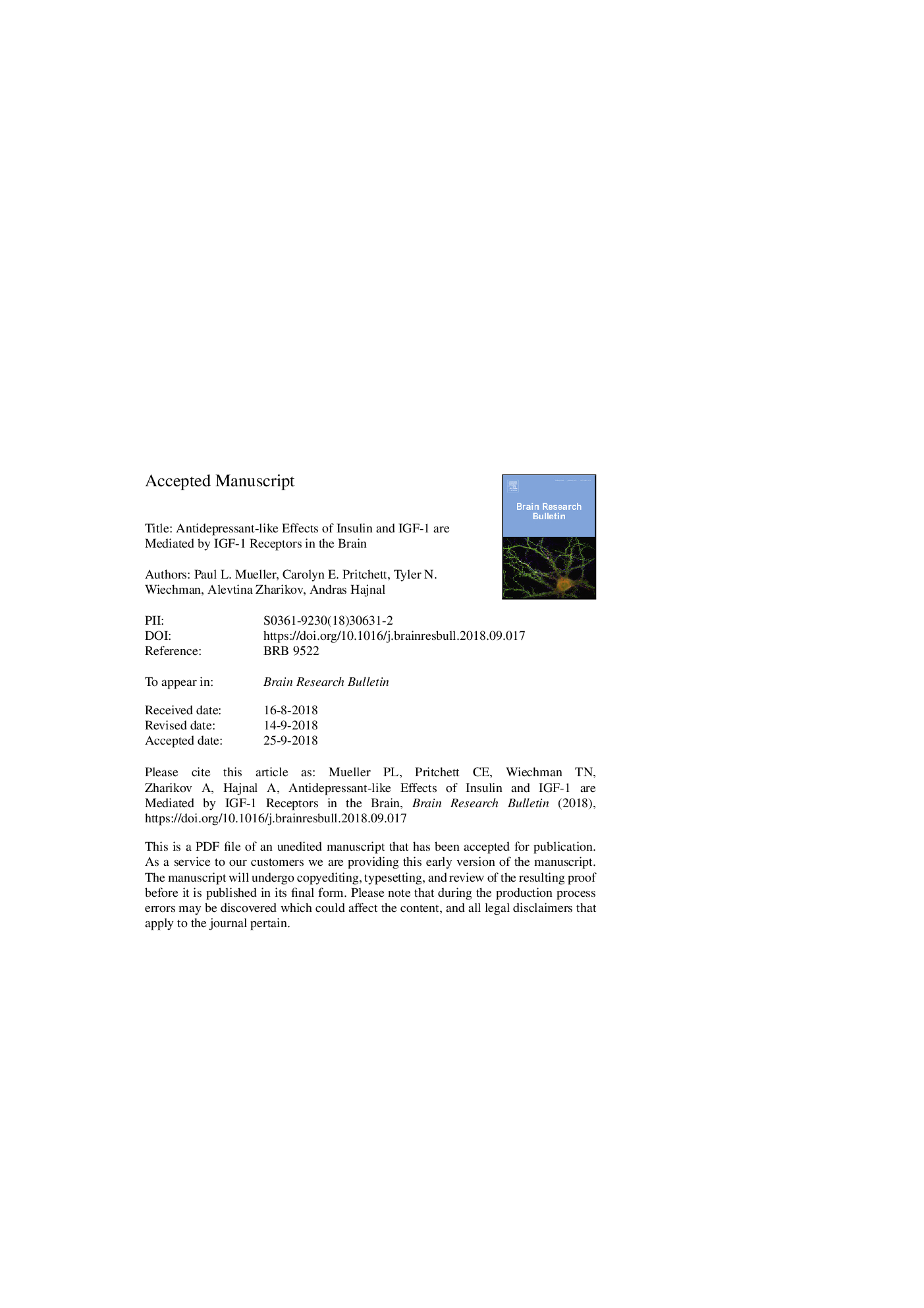| Article ID | Journal | Published Year | Pages | File Type |
|---|---|---|---|---|
| 11017886 | Brain Research Bulletin | 2018 | 29 Pages |
Abstract
Depression is associated with uncontrolled diabetes, which indicates a lack of insulin effect, yet the role of the insulin receptor in mediating depression is not clearly established because insulin receptors are not required for glucose entry into the brain. However, insulin receptors are important for brain function since insulin receptor knockout mice have depressive-like activity. Depression and cognitive problems are also associated with low insulin-like growth factor-1 (IGF-1) in the elderly. Rodent studies showed chronic IGF-1 administration had antidepressant-like (AD) activity. We asked if insulin in the brain might act through the IGF-1 receptor, as it does in some tissues. We used acute insulin or IGF-1 infusions into the 3rd ventricle (icv) in rats and tested animals in a forced swim test. We found that antidepressive-like behavior is mediated by insulin and IGF-1. Further, administration of the IGF-1 receptor antagonist JB-1 blocked the antidepressive-like activity of the insulin and IGF-1, indicating a strong relationship between insulin, IGF-1 and depression. Insulin acts at least partially through the IGF-1 receptor and is responsive to receptor antagonism. The model offers promise for future studies of the mechanism of depression, and therapy to increase insulin sensitivity and IGF-1 action including exercise and nutrition.
Related Topics
Life Sciences
Neuroscience
Cellular and Molecular Neuroscience
Authors
Paul L. Mueller, Carolyn E. Pritchett, Tyler N. Wiechman, Alevtina Zharikov, Andras Hajnal,
